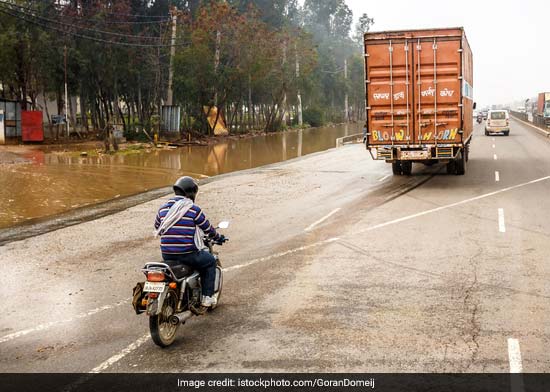
No Compromise On Road Safety: Government Likely To Ban Sale Of Helmets With Non-ISI Mark Across India
Highlights
- 70% of the helmets used in India fail to meet safety standards
- Government likely to ban sale of helmets without ISI mark
- Ban on non-ISI marked helmets will come into effect by end of 2018
Mumbai: Did you know that almost 70-80% of the helmets used by two-wheeler riders across India do not meet the required safety standards of ISI. In other words it simply means that despite being the largest two-wheeler market in the world, majority of its helmets do not have a proper outer shell, a protective padding, a chin strap and a helmet mass. In a bid to curb the sale of cheap and improper helmets, the Centre is likely to ban non-ISI marked helmets by end of this year.
“Looking at the current statics over 75 per cent to 80 per cent of helmets used by two-wheeler riders across India do not meet ISI standards, the market is flooded with sub-standard products that compromise on safety despite a fourth of all road deaths involve two-wheeler occupants,” said Rajeev Kapur, President, ISI Helmet Manufacturers’ Association.
Also Read: A Grieving Dad’s Appeal: Wear A Helmet And Make Indian Roads Safer
A senior transport ministry official confirmed the new policy and said that the Supreme Court panel on road safety has been informed by the Bureau of Indian Standards (BIS) about the process to ban non-ISI marked helmets and it is likely to be completed in next six months. Once the policy becomes effective, anyone found selling helmets with no or fake ISI mark will be heavily penalised.
Lauding the new move which aims to increase the safety of two-wheeler riders in India, Mr Kapur said, “We are now glad that government has made it mandatory for all helmet manufacturers to obtain Indian standards certification from Bureau of Indian Standards (BIS) for the headgears in order to reduce road fatalities.”
Also Read: Wearing A Helmet While Riding A Motorcycle May Reduce The Risk Of Spine Injury During Crash
While the ban on non-ISI helmets will reduce fatalities due to road accidents, the guideline on internationally certified imported helmets (which do not have an ISI mark) remain unclear. Will these high safety standard helmets be banned too for they do not have the ISI mark?
An impact of this policy was recently seen in Bengaluru. The Bengaluru traffic police had enforced a similar proposal in the city earlier this year to prevent road accidents deaths. Starting from February, the city traffic police was supposed to penalise two-wheeler riders with non-ISI marked substandard helmets. However the proposal was withdrawn. One of the reasons was that the ban enforced also included the imported helmets. A lot of criticism came from the motorcycle community on the ban policy.
Wearing a helmet with approved quality safety standards can significantly help in curbing the death rate, “Motorcyclists are 26 times more likely to die in a road crash than drivers of passenger cars. Wearing an appropriate helmet improves their chances of survival by 42% and helps avoid 69% of injuries to riders,” reads a report by United Nations.
In 2015, two-wheeler accidents claimed 36,800 victims and left around 93,400 injured. Numbers that could have been significyantly lower, if riders had proper helmets.
Also Read: Wearing Helmets – A Choice Between Life And Death



















Road sahi karwa do pehle !!